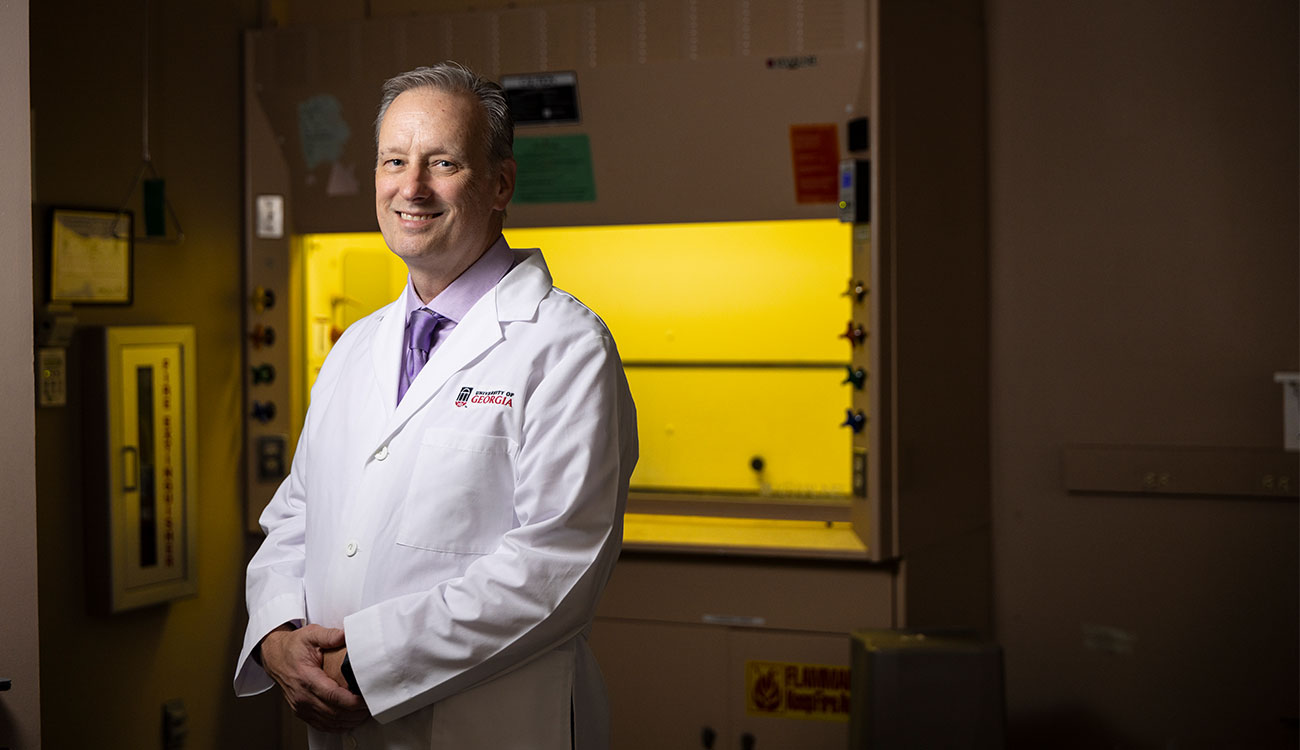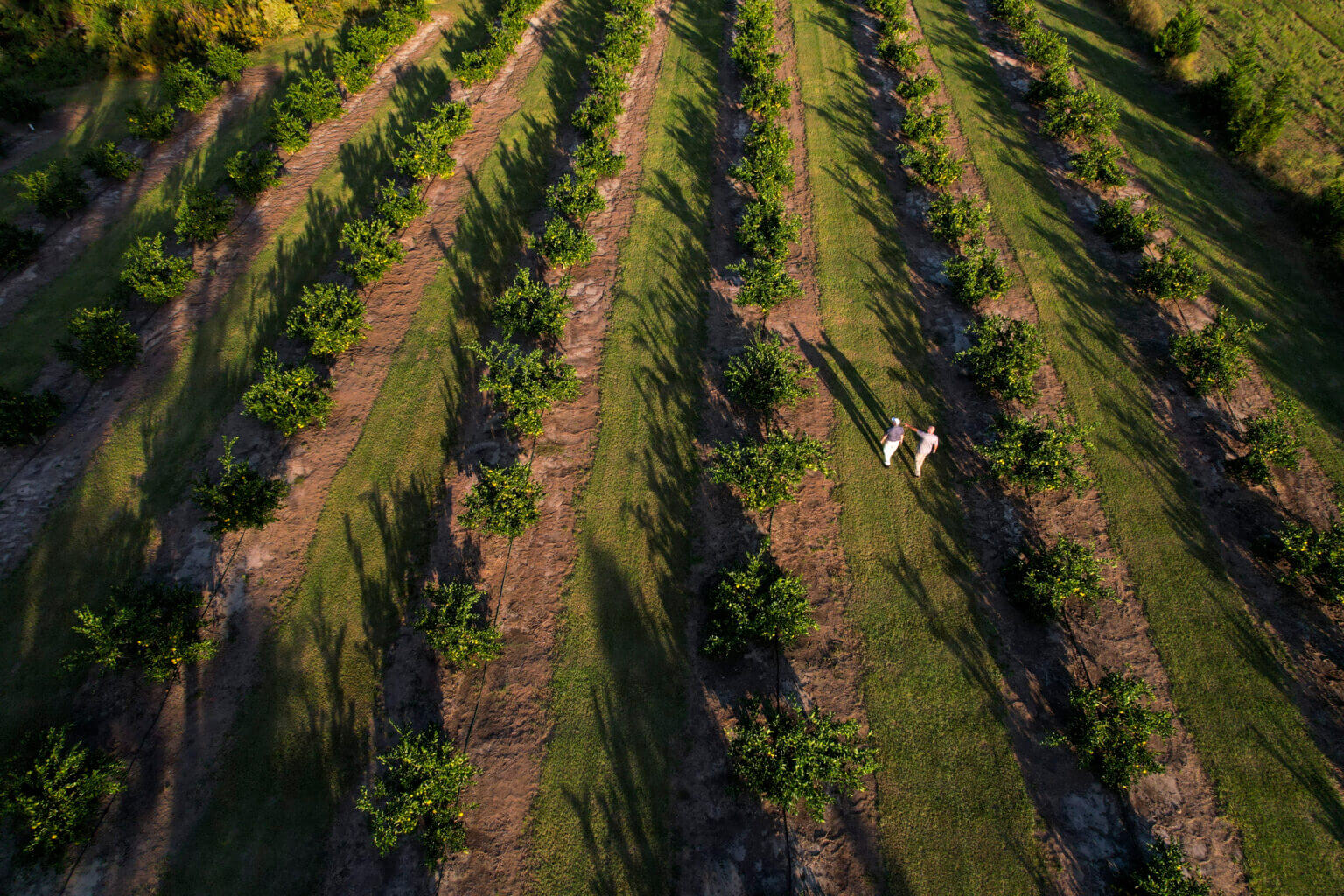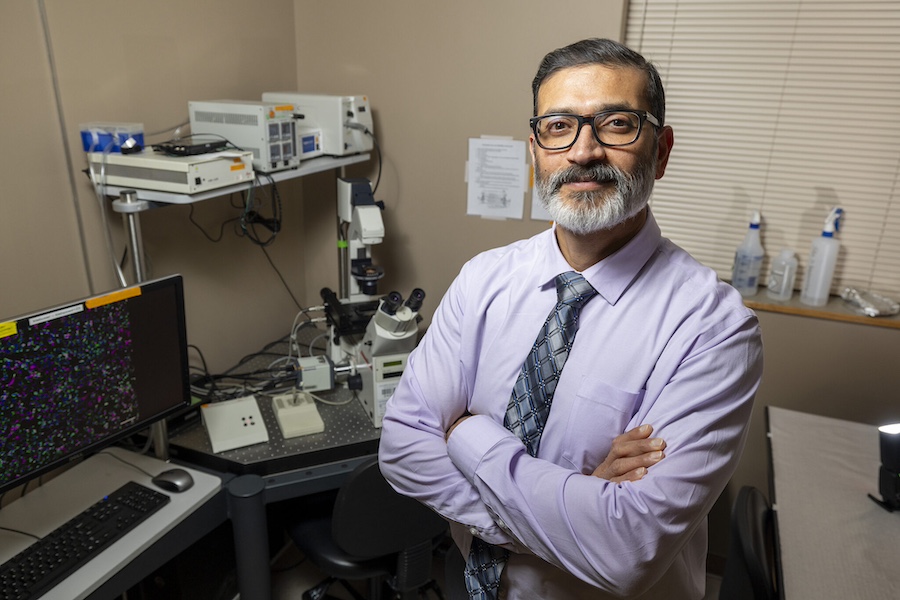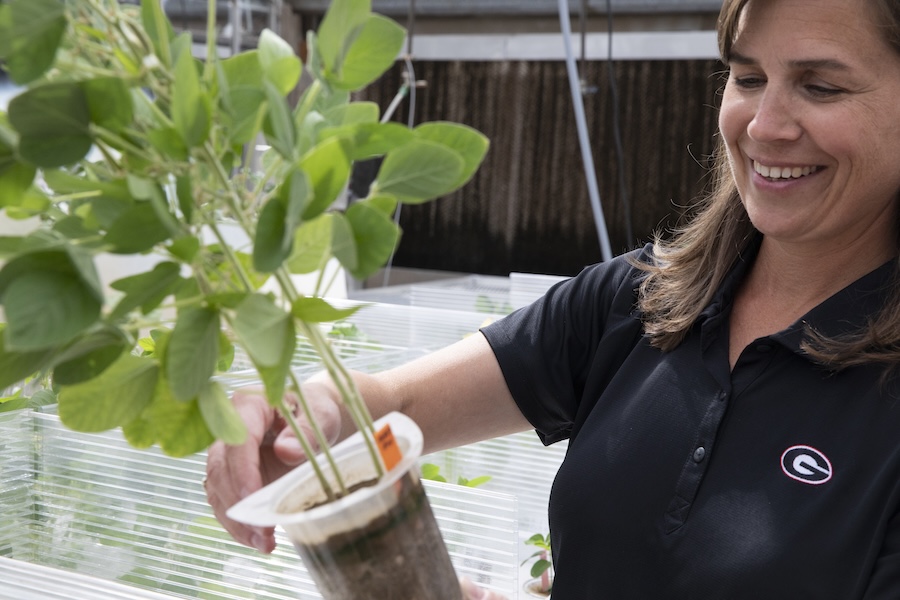Seventh-grade students in a gardening class in Griffin, Ga., had much higher gains on math and science test scores than students who were not in the class.
And the Kelsey Avenue Middle School students enjoyed the new class so much they're coming to "school" over their summer break.
Tilling the Earth and Crunching Numbers
"We use a garden as an instrument for teaching math and science," said Blanche McElfresh, one of the teachers of the class. "Adults do the plowing and fertilizing, but the students do everything else."
The students' "Learn and Serve Garden" is on a plot inside the Georgia Experiment Station Research and Education Garden, a garden run by the University of Georgia College of Agricultural and Environmental Sciences.
"First, the students lay out a grid on paper for the
garden's
design. Then they use string to lay out the grid on the garden
site," McElfresh said. "This shows them where to plant
seeds and young plants. But it also teaches them math skills like
geometry and measurement."
Bringing Agriculture Into the 'Classroom'
Jerry Johnson, a UGA CAES plant breeder, said the outdoor classroom involves the college in K-12 education. He said it also helps emphasize the use of agriculture in the school system as a way to teach math and science.
"I've been asked what numbers have to do with a plant scientist's work," Johnson said. "Math plays an important part of my research in plant genetics. I use my math skills every day."
The garden class must be working. At the beginning of the school year, students in the new class and the traditional class each take a pretest. At the end of the year, the students are tested again.
Students in New Class Earn Higher Scores
"We found significant gains in both math and science," said Ann Nunan, a teacher and coordinator of the gardening class. "The students perform much, much better than those who did not participate in the project."
If you don't believe the test scores, just ask students. "It's amazing. Before, I wasn't getting it," said Caroline Foster, a seventh-grader enrolled in the class. "But now, I'm learning a lot."
Classmate Ricky Clark agrees. "This class made it seem easy," he said. "They gave us a test before we started, and we all failed. At the end, we all made A's, and it was a hard test."
Donating Their Harvest to the Needy
Besides learning math and science, the students are learning to give to the community. They donate their garden harvest to the "Five Loaves and Two Fish" pantry, a Griffin food-relief agency that serves about 150 families each week.
The student garden includes summer squash, cucumbers, corn, peppers, tomatoes and sweet potatoes.
"Last
year, we harvested two to three bushels of squash a day and lots
of tomatoes," Johnson said. "We couldn't pick them fast
enough for the demand at the pantry. The pantry director loves
getting fresh vegetables to distribute to needy
families."
Twice a week over their summer break, the students visit the R&E Garden to harvest their vegetables and deliver them to the pantry. They say they believe in the community-service goal of the class.
"We're doing this for a reason -- to help people out -- and that makes me feel good," Clark said. "It's healthy food, too, not just canned goods."
The students say they enjoy the gardening. But they've learned that growing vegetables is hard work, too. "We all hate the weeds," said student Ashton Presley. "But all the hard work pays off now, because we get to see the people and give the food to them."
Many students regret having to advance to eighth-grade science classes. "I'd like to come back in the fall and harvest the sweet potatoes," Clark said. "Before this class, I didn't even know they grew underground."
The gardening class is a collaborative effort of the Spalding County Science Center, Kelsey Avenue Middle School, the UGA CAES, the Potash and Phosphate Institute, the Griffin Utility Club and Akins Feed and Seed. The project is funded in part by a service learning grant from the Georgia Department of Education.




.jpg)

